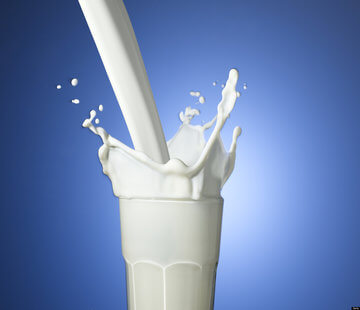
Debunked


Remember that glossy ad that used to plaster walls all over (my school for sure loved them!)? The ones with ridiculously, good-looking children showing off their milk moustaches? I mean you were considered ‘cool’ if you ‘Got Milk’! Why this monologue about milk? Because I was one of those rare children that hated the substance!
That morning glass before school was a mammoth task and one that required much nose pinching, squeezing of the eyes shut and quashing of the urge to not vomit. And let’s not even speak about the other two glasses I was forced to drink in my day, all because I was told I’d grow up to be “strong and smart” if I drank it religiously. But is milk really good for us?
Sure there are alternative sources of calcium which are nutrition and healthy like leafy green vegetable, bok choy, beans, soy milk etc. but there’s no denying that cow’s milk is superior to the lot. On the other hand, overconsumption of the substance has put us at an alarming risk of developing Type 1 Diabetes and at the brink of an obesity epidemic.
Who knew there was so much more to milk than just the creamy coolness? I for one feel slightly vindicated for disliking it as a child. But then again even I can’t deny its health benefits. When in doubt, I turn on my ‘moderation key’ mode. A glass of milk a day is certainly going to do you more good than harm but more than that I wouldn’t consume myself. And now when I see those ‘Got Milk Ads’ I can’t help but smile smugly and say to myself, “I know better” J
* the milk being discussed and debated here is cow’s milk

Juggling many roles from physician to writer to pilates instructor to Marketing-PR executive, Dr. Daamini is constantly pushed and inspired to get creative on how to encompass a Retreat into her daily life.
View Profile